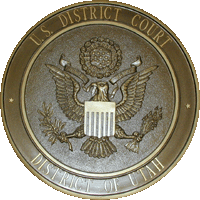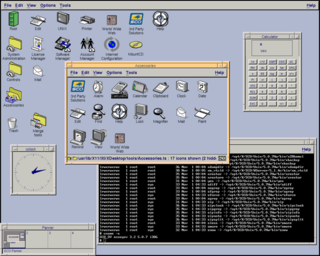Related Research Articles

Novell, Inc. was an American software and services company headquartered in Provo, Utah, that existed from 1980 until 2014. Its most significant product was the multi-platform network operating system known as Novell NetWare.

United Linux was an attempt by a consortium of Linux distributors to create a common base distribution for enterprise use, so as to minimize duplication of engineering effort and form an effective competitor to Red Hat. The founding members of United Linux were SUSE, Turbolinux, Conectiva and Caldera International. The consortium was announced on May 30, 2002. The end of the project was announced on January 22, 2004.

SCO Group, Inc. v. International Business Machines Corp., commonly abbreviated as SCO v. IBM, is a civil lawsuit in the United States District Court of Utah. The SCO Group asserted that there are legal uncertainties regarding the use of the Linux operating system due to alleged violations of IBM's Unix licenses in the development of Linux code at IBM. The lawsuit was filed in 2003, it has lingered on through the bankruptcy of SCO Group and the adverse result in SCO v. Novell, and was reopened for continued litigation by order of a new judge on June 14, 2013. Pursuant to the court order reopening the case, an IBM Motion for Summary Judgment was filed based upon the results of the Novell decision. On December 15, 2014, the judge granted most of IBM's motion, thereby narrowing the scope of the case, which remained open. On March 1, 2016, following a ruling against the last remaining claims, the judge dismissed SCO's suit against IBM with prejudice. SCO filed an appeal later that month. In February 2018, as a result of the appeal and the case being partially remanded to the circuit court, the parties restated their remaining claims and provided a plan to move toward final judgement.

The SCO Group was an American software company in existence from 2002 to 2012 that became known for owning Unix operating system assets that had belonged to the Santa Cruz Operation, including the UnixWare and OpenServer technologies, and then, under CEO Darl McBride, pursuing a series of high-profile legal battles known as the SCO-Linux controversies.

Caldera International, Inc., earlier Caldera Systems, was an American software company that existed from 1998 to 2002 and developed and sold Linux- and Unix-based operating system products.

Groklaw is a website that covered legal news of interest to the free and open source software community. Started as a law blog on May 16, 2003, by paralegal Pamela Jones ("PJ"), it covered issues such as the SCO-Linux lawsuits, the EU antitrust case against Microsoft, and the standardization of Office Open XML.

The Santa Cruz Operation, Inc. was an American software company, based in Santa Cruz, California, that was best known for selling three Unix operating system variants for Intel x86 processors: Xenix, SCO UNIX, and UnixWare.

UnixWare is a Unix operating system. It was originally released by Univel, a jointly owned venture of AT&T's Unix System Laboratories (USL) and Novell. It was then taken over by Novell. Via Santa Cruz Operation (SCO), it went on to Caldera Systems, Caldera International, and The SCO Group before it was sold to UnXis. UnixWare is typically deployed as a server rather than a desktop. Binary distributions of UnixWare are available for x86 architecture computers. UnixWare is primarily marketed as a server operating system.
In a series of legal disputes between SCO Group and Linux vendors and users, SCO alleged that its license agreements with IBM meant that source code IBM wrote and donated to be incorporated into Linux was added in violation of SCO's contractual rights. Members of the Linux community disagreed with SCO's claims; IBM, Novell, and Red Hat filed claims against SCO.

SCO v. Novell was a United States lawsuit in which the software company The SCO Group (SCO), claimed ownership of the source code for the Unix operating system. SCO sought to have the court declare that SCO owned the rights to the Unix code, including the copyrights, and that Novell had committed slander of title by asserting a rival claim to ownership of the Unix copyrights. Separately, SCO was attempting to collect license fees from Linux end-users for Unix code through their SCOsource division, and Novell's rival ownership claim was a direct challenge to this initiative. Novell had been increasing their investments in and support of Linux at this time, and was opposed to SCO's attempts to collect license fees from Novell's potential customers.
Beginning in 2003, The SCO Group was involved in a dispute with various Linux vendors and users. SCO initiated a series of lawsuits, the most known of which were SCO v. IBM and SCO v. Novell, that had implications upon the futures of both Linux and Unix. SCO claimed that Linux violated some of SCO's intellectual properties. Many industry observers were skeptical of SCO's claims, and they were strongly contested by SCO's opponents in the lawsuits, some of which launched counter-claims. By 2011, the lawsuits fully related to Linux had been lost by SCO or rendered moot and SCO had gone into bankruptcy. However the SCO v. IBM suit continued for another decade, as it included contractual disputes related to both companies' involvement in Project Monterey in addition Linux-related claims. Finally in 2021 a settlement was reached in which IBM paid the bankruptcy trustee representing what remained of SCO the sum of $14.25 million.
SCOsource is a business division of The SCO Group that managed its Unix intellectual property. The term SCOsource is often used for SCO's licensing program that allowed corporate users of Linux to buy licenses to proprietary Unix technology that SCO claimed exists in the Linux operating system. A single CPU license costs $699 (USD).

Xinuos OpenServer, previously SCO UNIX and SCO Open Desktop, is a closed source computer operating system developed by Santa Cruz Operation (SCO), later acquired by SCO Group, and now owned by Xinuos. Early versions of OpenServer were based on UNIX System V, while the later OpenServer 10 is based on FreeBSD 10. However, OpenServer 10 has not received any updates since 2018 and is no longer marketed on Xinuos's website, while OpenServer 5 Definitive and 6 Definitive are still supported.
Ralph J. Yarro is an American business executive, entrepreneur and an activist. He co-founded Atua Ventures and was previously the CEO of the Canopy Group. Yarro has been associated with various technology companies, including Altiris, Caldera, Techcyte and Voonami.

The history of Unix dates back to the mid-1960s, when the Massachusetts Institute of Technology, AT&T Bell Labs, and General Electric were jointly developing an experimental time-sharing operating system called Multics for the GE-645 mainframe. Multics introduced many innovations, but also had many problems. Bell Labs, frustrated by the size and complexity of Multics but not its aims, slowly pulled out of the project. Their last researchers to leave Multics – among them Ken Thompson, Dennis Ritchie, Doug McIlroy, and Joe Ossanna – decided to redo the work, but on a much smaller scale.
Caldera OpenLinux (COL) is a defunct Linux distribution. Caldera originally introduced it in 1997 based on the German LST Power Linux distribution, and then taken over and further developed by Caldera Systems since 1998. A successor to the Caldera Network Desktop put together by Caldera since 1995, OpenLinux was an early "business-oriented distribution" and foreshadowed the direction of developments that came to most other distributions and the Linux community generally.
Stephen L. Norris is an American businessman, investor, and financier. He was one of the co-founders of The Carlyle Group, an American private equity firm. He was later owner and founder of Stephen Norris Capital Partners and the chairman of Gulf Capital Partners.
Fear, uncertainty, and doubt (FUD) is a manipulative propaganda tactic used in sales, marketing, public relations, politics, polling, and cults. FUD is generally a strategy to influence perception by disseminating negative and dubious or false information, and is a manifestation of the appeal to fear.
Xinuos is an American software company that was created in 2011 and was first called UnXis until assuming its current name in 2013. Xinuos develops and markets the Unix-based OpenServer 6, OpenServer 5, and UnixWare 7 operating systems under SCO branding. Xinuos formerly sold the FreeBSD-based OpenServer 10 operating system.

SCO Forum was a technical computer conference sponsored by the Santa Cruz Operation (SCO), briefly by Caldera International, and later The SCO Group that took place during the 1980s through 2000s. It was held annually, most often in August of each year, and typically lasted for much of a week. From 1987 through 2001 it was held in Santa Cruz, California, on the campus of the University of California, Santa Cruz. The scenic location, amongst redwood trees and overlooking Monterey Bay, was considered one of the major features of the conference. From 2002 through 2008 it was held in Las Vegas, Nevada, at one of several hotels on the Las Vegas Strip. Despite the name and location changes, the conference was considered to be the same entity, with both the company and attendees including all instances in their counts of how many ones they had been to.
References
- ↑ http://www.groklaw.net/pdf4/IBM-1162.pdf [ bare URL PDF ]
- ↑ "SCO so despised that chief is armed". Deseret News. 2004-03-08. Retrieved 2006-11-13.
- ↑ Hindley, Kelly; Raphel, Catherine; King, Melanie (1995-06-15). "Novell Forms New Systems Group To Develop Next Generation Network System Software" (Press release). Orem, UT, USA: Novell, Inc. Archived from the original on 2018-08-18. Retrieved 2018-08-18.
- 1 2 3 Stone, Brad (July 2004). "The Linux Killer". Wired. Retrieved 2006-11-13.
- ↑ "Darl McBride – President and Chief Executive Officer". The SCO Group. Archived from the original on 2004-10-10. Retrieved 2006-11-13.
- ↑ Torode, Christina (2003-11-14). "Top 25 Executives: Darl McBride, President and CEO, The SCO Group". CRN. Archived from the original on 2004-02-02. Retrieved 2006-11-13.
- ↑ "CRN Interview: SCO CEO Defends $1 Billion Lawsuit Against IBM". CRN. 2003-04-24. Retrieved 2021-07-30.
- ↑ Orchard, Jeremy. "Xinuos". Archived from the original on February 7, 2005.
- ↑ The SCO Group Files Chapter 11 to Protect Assets as It Addresses Potential Financial and Legal Challenges Archived September 3, 2009, at the Wayback Machine . The SCO Group, Inc. press release, September 14, 2007
- ↑ "SCO Receives Nasdaq Notice Letter". 2007-12-27. Archived from the original on 2007-12-30. Retrieved 2007-12-29.
- ↑ "SCO CEO Darl McBride is on his way out" . Retrieved June 1, 2016.[ dead link ]
- ↑ "Form 8-K for SCO GROUP INC: Change in Directors or Principal Officers, Other Events, Financial Statements". Yahoo! Finance. October 19, 2009. Archived from the original on October 22, 2009.
- ↑ "SCO sacks Darl McBride". Archived from the original on October 21, 2009.
{{cite web}}: CS1 maint: unfit URL (link) - ↑ "Darl Buys (Not Licenses) SCO's Mobility Assets for $100,000". Groklaw. Retrieved 2010-04-12.
- ↑ "Darl McBride". LinkedIn. Retrieved 2014-12-29.
- ↑ "Deron Williams on Twitter". Twitter.
- ↑ "DARL CHARLES MCBRIDE Case Summary". UniCourt. Retrieved 2023-03-04.